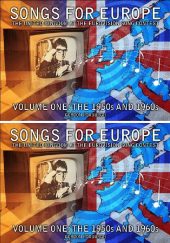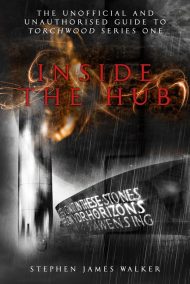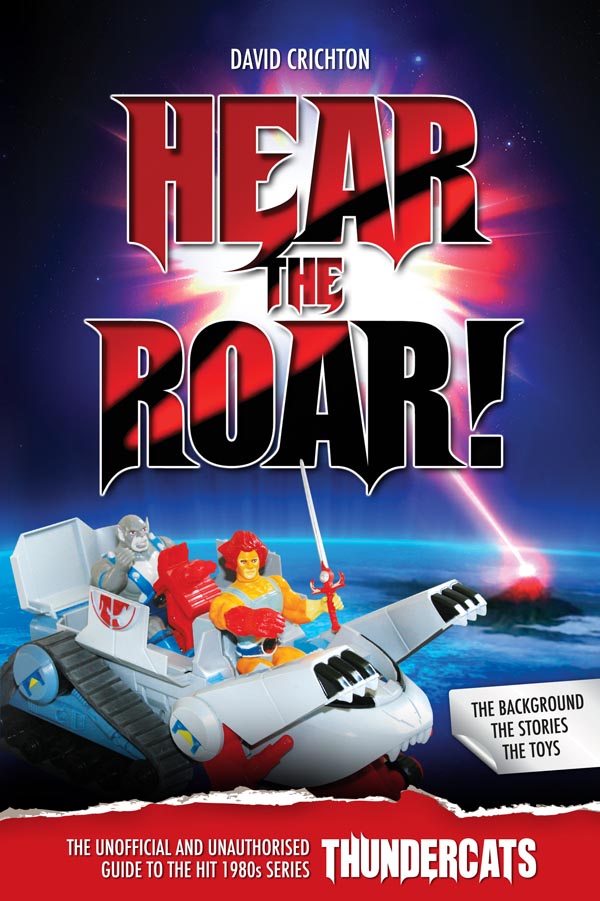SO, YOU THOUGHT YOU KNEW EVERYTHING ABOUT SPACE: 1999?
HOLD MY COMMLOCK …
The cult classic science fiction series Space: 1999 has legions of fans around the world and has been researched and documented in comprehensive books and documentaries, so fans can be forgiven for thinking there’s nothing new under the ‘Black Sun’ … But they’d be wrong.
Did you know …
– That actors on casting lists for Commander Koenig included Larry Hagman, Doug McClure, Robert Culp, and even William Shatner?
– The first title for the pilot episode was ‘The Last of the Earth Men’?
– The Chief Medical Officer was going to be male, and Professor Bergman could have been Professor Danilo Sabatini?
– That life on the Moon was intended to be a powder keg of fear and dissatisfaction, with Moon City constantly at war with alien races?
– That there were indeed discussions about a possible spin-off series?
This book takes you back to the beginning, to the genesis of the series, and to early themes, characters, and story outlines. It uncovers a treasure trove of previously unknown information, correspondence, casting lists, production information, and long-lost documents charting alternative realities of what might have been had the series taken any multitude of different forks in the road. And throughout, this book features extensive input from series story consultant and scriptwriter Christopher Penfold.
Any self-respecting Alphan who thinks they know it all needs to read this book and explore the lost universe of Space: 1999!
324pp. Also contains black and white photographs. 6×9 format paperback book.
ISBN 978-1-84583-196-7 (pb)
Published 18 March 2022
REVIEW COMMENTS
‘An outstanding addition to the behind the scenes content available for Anderson fans.’ Paul Simpson, SciFiBulletin
‘I have long been a fan of Space: 1999 and wrote about it for Starlog magazine. I thought I knew a lot about the series but this book added even more to it. The authors have done a great job of tracking how the series morphed from the initial rough concepts through to what we saw on the air, including much of the politics and issues that caused the big format change between seasons. It features rare photos and internal correspondence that shed new light on the story of Moonbase Alpha. Well recommended to fans of the series.’ Bill Cotter, Amazon
‘Extensive amount of research went into this culmination that led to what we fans know as Space: 1999. Robert Wood, David Hirsch along with original show writer Christopher Penfold tell their tales, presented very detailed information, much to do about lost stories of what was led to one of the most spectacular science fiction shows of the 1970’s (I’m rather impartial and very biased, but that is for another story for another day 😉 ). Now THE pinnacle resource to satisfy your “did you know” itch of those questions you have been asking yourself for decades now are all presented in this long overdue book.’ Gordon L Moriguchi, Amazon
‘This book boasts an impressive array of material that has surfaced from a variety of sources, including the estate of the late actor Martin Landau who, thankfully, kept a copy of just about everything! Background on how the show was formulated, various ideas for characters and situations, and many other interesting facts are presented in this comprehensive volume. Finally, after nearly 50 years, many pieces of the puzzle surrounding the formation and production of Space: 1999 have been put together by authors Robert E Wood and David Hirsch, with the help of series writer Christopher Penfold. I can highly recommend To Everything That Might Have Been to all fans of the series.’ Anthony Wynn, Amazon
ABOUT THE AUTHORS
DAVID HIRSCH
Born in 1957, David grew up watching the many TV series created by Gerry and Sylvia Anderson. During his first year of college, he elected to write a paper for a film study class on their work, but with little research material available in the pre-internet era, he was forced to make a daring attempt to secure information from the company that distributed their programs in America, ITC.
A fortuitous meeting with Robert Mandell, son of company president Abe Mandell, eventually led to an introduction to Kerry O’Quinn and Norman Jacobs, publishers of Starlog Magazine. A brief summer internship in 1977 led to a long association with the magazine where he worked his way up from contributor (Issue #7) to Associate Editor.
Among his work for the magazine, he edited The Official Moonbase Alpha Technical Manual (1977), ‘Gerry Anderson’s Space Report’ column and several popular titles in the Starlog Guidebook series. These included Fantastic Worlds (1978), Science Fiction Weapons (1979), Spaceships (Revised & Expanded 1980), Special Effects, Vol. 2 (1980), Science Fiction Heroes (1980), Science Fiction Villians (1980), TV Episode Guides, Vol. 1 (1981) and TV Episode Guides, Vol. 2 (1982).
Though he left his full-time position after Issue #71 (1983), David continued as a free-lance writer, now specializing in film and TV music with his AudioLog column (#201, 1994 through 252, 1998) and interviewed many composers such as David Arnold (Independence Day), Leonard Rosenman (RoboCop 2) and, for their Star Trek Magazines, Dennis McCarthy, Ron Jones and Jay Chattaway.
This passion has also led to work on several soundtrack albums as a consultant, producer and writing liner notes. Titles include Star Trek Volume 2: Doomsday Machine & Amok Time (Sol Kaplan & Gerald Fried, GNP Crescendo Records 1992), Space: 1999 (Year 2, Derek Wadsworth, Composer Promo 1995), Godzilla (50th Anniversary Edition, Akira Ifukube, La-La Land Records 2004), Thunderbird 6 (Barry Gray, MGM Music 2005), King Kong vs. Godzilla (Akira Ifukube, La-La Land Records 2006) and the 1998 American Godzilla (David Arnold, BSX Records 2012).
He has contributed to several books including The Star Trek Encyclopedia (Michael and Denise Okuda, Simon & Shuster 1997 edition), Videohound’s Soundtracks (Didier C Deutsch, Visible Ink 1998), the Space: 1999 novel ‘The Whispering Sea’ (John Kenneth Muir, Powys Media, 2014) and Martin Bower’s World of Models (Shaun McClure & Martin Bower 2019).
More recently, David has achieved a life-long dream to write for a Gerry Anderson production when son Jamie Anderson invited him to write scripts for the audio drama revival Terrahawks volume 2 ~ ‘Lights, Camera, Disaster’ (Big Finish 2016) and Terrahawks volume 3 ~ ‘Set Sail for Mis-Adventure’ and ‘You Foe’ (Big Finish 2017).
Currently, he is consulting on an update of his first book, the Moonbase Alpha Technical Operations Manual (Chris Thompson & Andrew Clements, Anderson Entertainment, 2021) and producing a series of albums for the Japanese a cappella group Bukimisha (Godzilla vs Rodan, BSX Records 2021).
ROBERT E WOOD
Born in 1971, Robert’s love of Space: 1999 has been nearly life-long and has led him to numerous extraordinary experiences, not least of which was a fifteen-year friendship and working relationship with series star Barry Morse, during which they produced (as a triumvirate with Anthony Wynn) a television movie version of Morse’s one-man stage show Merely Players (2000), TV specials Spotlight on Barry Morse and Spotlight on 1999 (both 2002), the Space: 1999 audio book Resurrection performed by Barry Morse (released by Powys Media in 2010), the audio drama Rogues and Vagabonds: A Theatrical Scrapbook (released on CD in 2013), and stage plays including multiple performances of Merely Players in the United States, Canada, and England, and a 1999 Los Angeles production of Love Letters which reunited Morse with his Space: 1999 co-star Barbara Bain.
Robert also worked with Barry Morse and Anthony Wynn on numerous books including Merely Players: The Scripts (2003), Morse’s autobiography Remember with Advantages (2006), Stories of the Theatre (2006), and following Morse’s passing Robert continued to collaborate with Wynn to memorialize Morse in additional books Such Stuff as Dreams … (2009), Valiant for Truth: Barry Morse and his Lifelong Association with Bernard Shaw (2012), and The Wit and Wisdom of Barry Morse (2013).
Robert’s friendship with Space: 1999 actress Zienia Merton also led him to edit her autobiography, Anecdotes & Armadillos (2005).
Throughout 2020 and 2021, while writing this book To Everything That Might Have Been, Robert has also been editing the soon-to-be-announced autobiography of another Space: 1999 star.
As an authority on Space: 1999 Robert has appeared on numerous television programs, radio talk shows, and podcasts and has been published in magazines such as Filmfax (issues 116 and 117, 2008). His book Destination: Moonbase Alpha – The Unofficial and Unauthorised Guide to Space: 1999 (2010) is the most comprehensive guide to the series ever published.
Since 2012 Robert has been working closely with writer and script editor Christopher Penfold and writing partner Steve Warnek developing concepts and writing screenplays for television and film projects.
CHRISTOPHER PENFOLD
Christopher Penfold has been both writer and script editor in British film and television for over forty years during which he has either written or script edited over 300 hours of prime-time TV including single plays and several feature films. Christopher was story consultant and lead writer for the first season of Gerry Anderson’s cult series Space: 1999, which starred Martin Landau and Barbara Bain, and wrote the second season of The Tripods for the BBC. He script-edited and wrote for the immensely popular BBC series All Creatures Great And Small and he either wrote or script-edited over 100 episodes of ITV’s long-running hit show The Bill. For ten years he taught on the Carlton Screenwriters Course, which produced some of the most successful writers in UK television today. In 1998 he set up his own script production company, ScriptWorks, through which he assisted in the script development of Saul Metzstein’s first feature film, Late Night Shopping (a prizewinner at Berlin in 2000); John Deery’s first feature film, Conspiracy Of Silence (winner of the Hartley-Merrill International Screenwriting Award at Cannes in 2001); Kevin Sampson’s Awaydays; Jonathan Glazer’s second feature film Birth, which starred Nicole Kidman and Lauren Bacall, and his 2013 feature Under The Skin, which starred Scarlett Johansson. Most recently he has assisted in the development of Nicholas Martin’s screenplays for Florence Foster Jenkins, which was directed by Stephen Frears and starred Meryl Streep and Hugh Grant. From 1999 Christopher was series editor for 78 episodes of ITV’s Midsomer Murders, which has been possibly the most successful long-form drama series in the history of television, with 128 feature-length episodes produced to date and which is sold in 186 countries.















Paul Simpson –
‘An outstanding addition to the behind the scenes content available for Anderson fans.’ Paul Simpson, SciFiBulletin
https://scifibulletin.com/uk-tv/space-1999-review-to-everything-that-might-have-been/